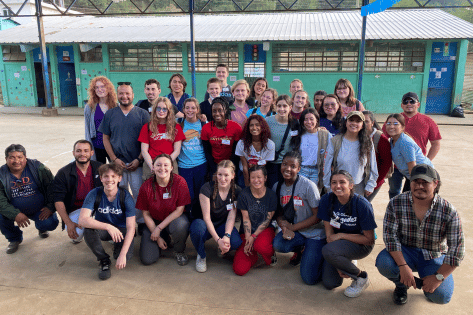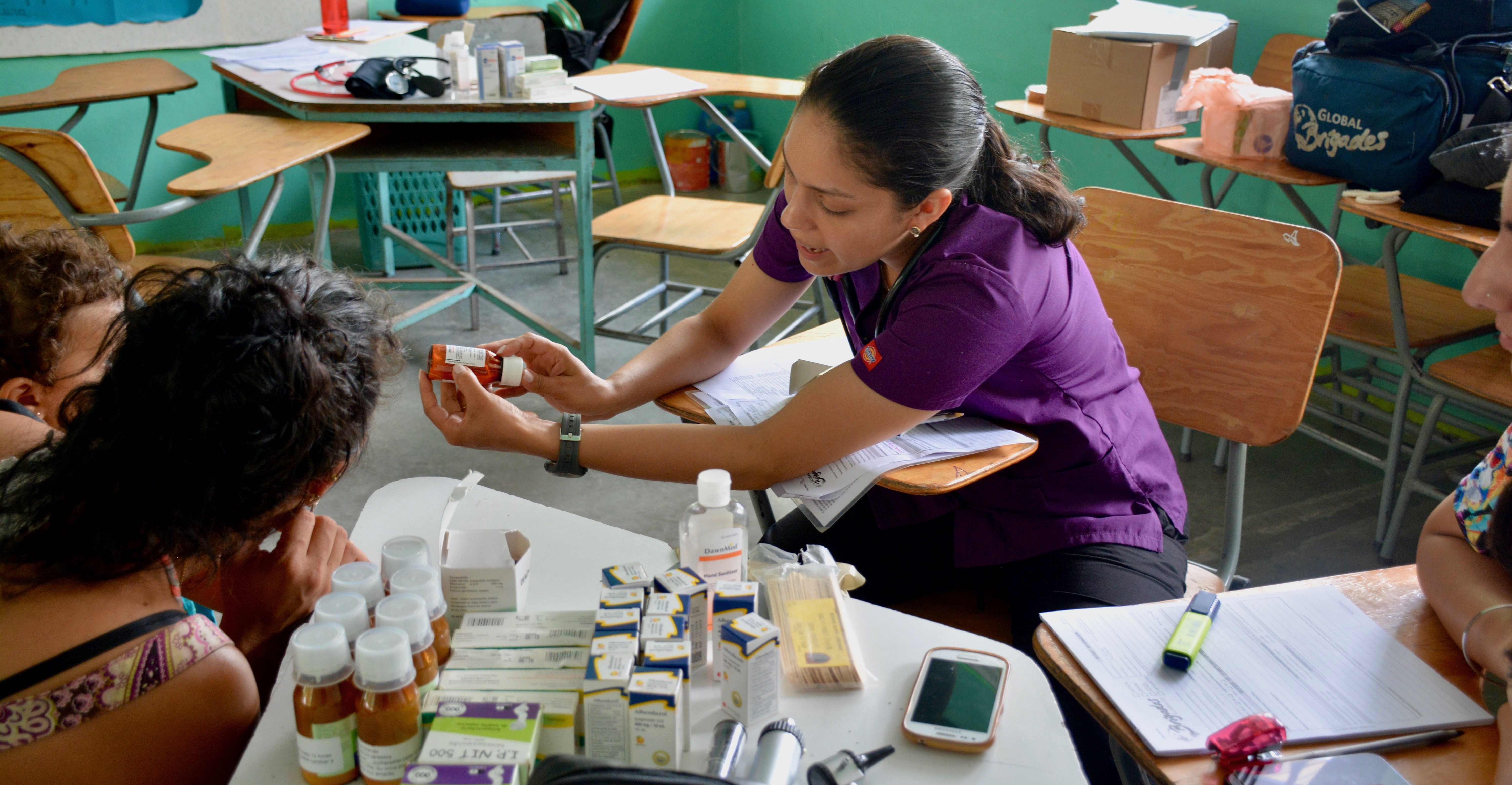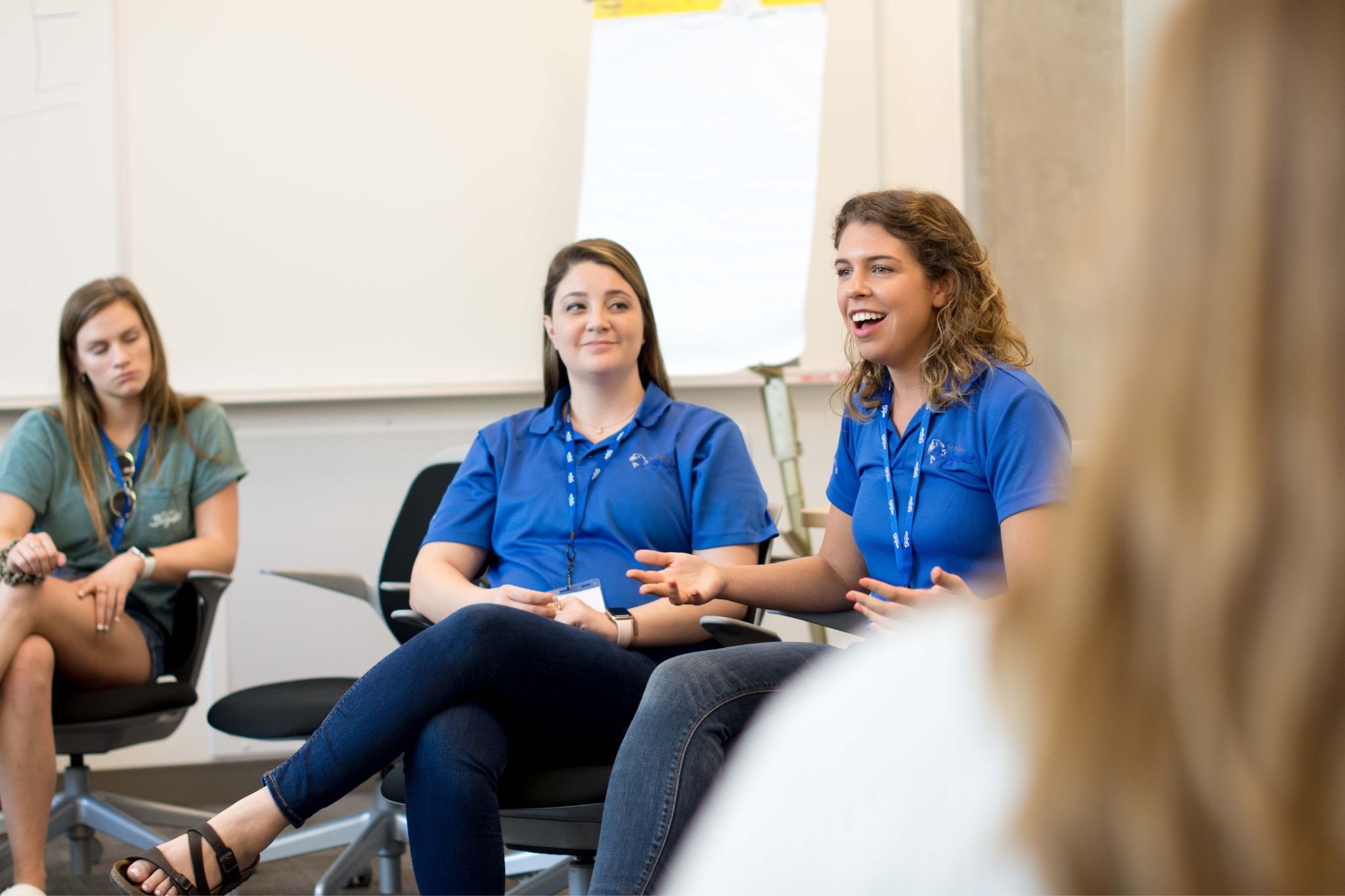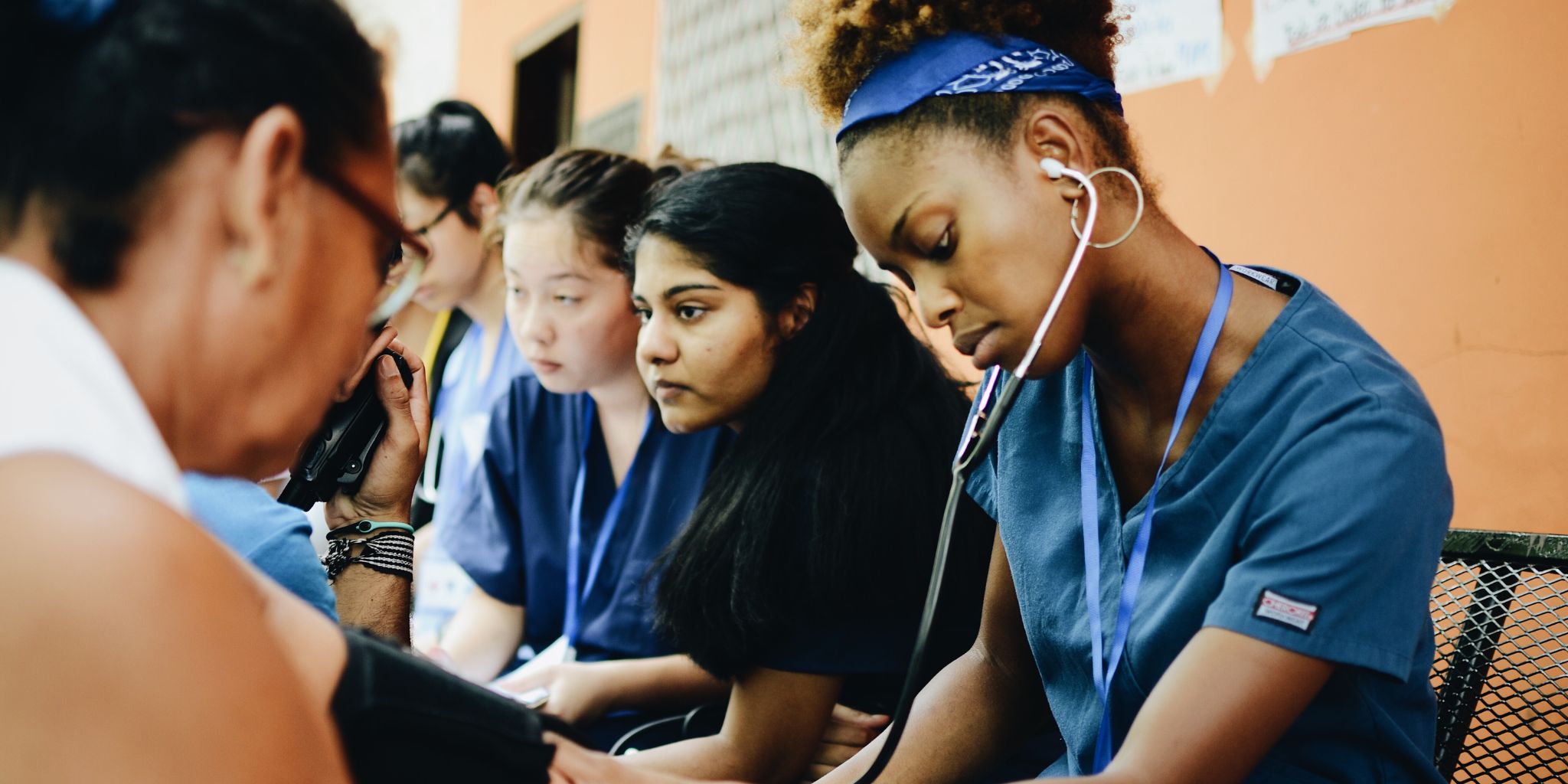Communicating effectively is a key component in patient care, which is doubly important when language barriers are in play. In an increasingly multicultural healthcare landscape, embracing language learning can increase the quality of patient care.
Learning a new language as a pre-med can boost your career prospects, foster cultural competency in a real way, allow you to reach populations that may be ignored otherwise, and more.
6 Benefits of Learning a New Language Before Med School
Studying a foreign language, in general, is good for your brain and personal growth. It can be even more powerful in the medical field and in preparation for a medical career.
It can boost your med school application.
While that high school French course won’t do you any favors on a medical school application, being bilingual can be almost as impressive as a high GPA and MCAT score.
In states like California, Texas, and Florida, with large Spanish-speaking populations, being bilingual in Spanish can be more important than volunteer work and other extracurricular activities as a premed major.
It opens doors to opportunities in other countries.
Knowing another language can make you the ideal candidate for opportunities in countries that speak that language. This can include clinical experiences and medical brigades that do good in more than a performative way.
Global Medical Brigades is the largest student-led movement for global health. We prioritize sustainable systems that start with cultural competency, including language learning.
It opens doors closer to home, too.
There will always be a demand for bilingual healthcare professionals. In the United States, being bilingual in Spanish, in particular, is a big plus when it’s time to explore job opportunities. That can include clinical opportunities as a translator before you’re done with your degree.
It improves your cognitive skills.
Learning a second language is good for your brain. It boosts memory, problem-solving, and multi-tasking skills — all essential skills in medical school. Anything that makes you more successful as a student works in your favor when you’re ready to look for a job within the healthcare system.
It improves your cultural competency.
Learning a language is a way to immerse yourself in a different culture, become a global citizen, and combat ethnocentrism. If that language is Spanish, you have the opportunity to further understand people from Colombia, Spain, Peru, and much of Central and South America.
Communicating with patients from different countries more effectively helps you connect on a deeper level. It can help you develop empathy as a future healthcare professional and learn about nuances in medicine that exist among different cultures.
You’ll communicate with future patients better.
Learning the language you’ll be exposed to the most in clinical experiences can foster trust and build rapport. It allows you to be a better advocate for patient care, especially in situations where other medical professionals lack those language skills.
It could support better health outcomes, too. If your patient has an improved understanding of their condition and treatment plan, they’re more likely to follow your advice.
What Languages Are the Best for Pre-Meds to Learn?
After English, Spanish tops the best language for pre-meds interested in reaching the most patients. Rankings show the most popular languages spoken in the United States (other than English) are, in order:
- Spanish
- Chinese/Mandarin
- Tagalog
- Vietnamese
- Arabic
Once you’re in medical school, you’ll likely be exposed to some Greek and Latin as you learn the origins of medical terminology. It’s most useful to your medical education and professional career to speak a language like Spanish with fluency.
Presenting Language Skills on the Medical School Application
While you’re not required to have language skills outside of English as a premed student, there is a section on medical school applications (AMCAS, AACOMAS, and TMDSAS) that asks about your proficiency in other languages.
You’ll choose your language from a given list and rate your proficiency using the following (on the AMCAS): Native/Functionally Native, Advanced, Good, Fair, or Basic. You’ll also report whether that language was spoken in your childhood home and how often.
Weave in any language skills where appropriate to show that you understand how important they are in reaching future patients.
You can do this in the Work/Activities section of the AMCAS. International volunteer opportunities, global medical clubs, or clinical work as a translator are three possibilities for experiences that show off language skills.
Note: Be honest about your language skills. You never know who you’ll get in an interview room once you get to that stage or how you’ll be tested in a real-world setting. Embarrassment will be the least of your problems if a bilingual interviewer begins speaking with you and you can’t follow it because you oversold your abilities.
How to Get Started
The best way to learn a new language is to immerse yourself in that language in your free time, but there are other ways to supplement your learning.
Check out free online programs like Duolingo or paid subscriptions like Mango Languages and Babbel. Watch YouTube videos or programming in that language. Find in-person courses to converse with others at your level.
If you’re interested in learning Spanish, volunteer with an organization like Global Medical Brigades. Language learning is an important piece of our cultural prep, whether you’re in person or on a Medical TeleBrigade.
Avoiding Cultural Missteps
Learning a new language can make communication more efficient, but there are other dynamics to consider to be an effective and respectful communicator:
- Be open to nuance. It’d be wrong to make universal assumptions about everyone who speaks Spanish, for example, as there are so many different cultures that speak it.
- Avoid direct translations. A key component of fluency is learning idioms in that language. Direct translations can lead to miscommunication.
- Pay attention to body language. Non-verbal communication cues are just as important as verbal cues in many cultures. Learn which gestures may be considered offensive.
- Consider social hierarchy. Some languages come with layers of formality depending on who you’re talking to or about.
- Watch the slang. Colloquial expressions can help you make connections, but some words and phrases can be considered offensive in the wrong situation.
- Learn about cultural sensitivities. That includes knowing which topics are taboo, avoiding stereotypes, and understanding why certain comments may be offensive.
Join the Largest Student-Led Movement for Global Health
We’ve already mentioned that one of the best ways to learn a new language is to immerse yourself in it. Global Medical Brigades allow you to do that with the added bonus of supporting sustainable global health initiatives.
Ready to boost your language skills, gain experience in international medicine, and make a tangible impact?







